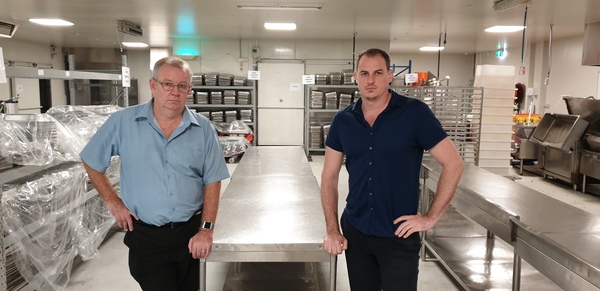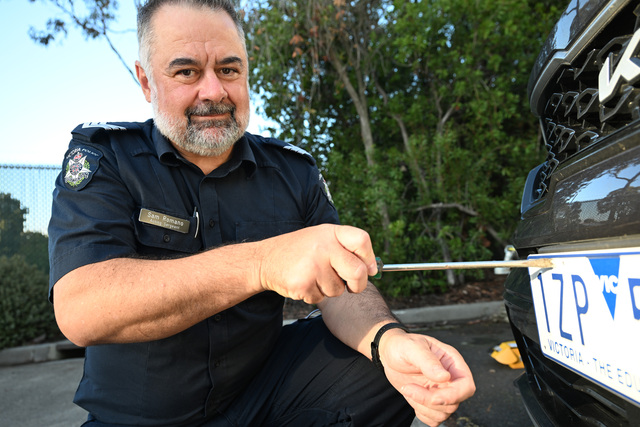I Cook Foods has launched Supreme Court action as it alleges Parliamentary inquiry evidence has confirmed the business’s shutdown was a “stitch-up” by health authorities.
The lawsuit for damages was lodged at the court on 24 June – the same day that the department defended its actions at the Upper House inquiry into I Cooks’ closure.
“We’re going to keep fighting,” director Ian Cook said.
Mr Cook is also demanding a right-of-reply to the inquiry to rebut testimony by Greater Dandenong Council and the department.
He says it can show the family business was illegally shutdown, the listeria risks were exaggerated, and the food-safety breaches were fabricated.
In February 2019, the DHHS closed the Dandenong South commercial caterer for more than a month to allegedly stop a listeria mono food-poisoning outbreak after the death of an elderly hospital patient.
It effectively destroyed a 33-year-old, $40-million-plus business and 41 jobs, the Cooks say.
Armed with extensive video footage, I Cook Foods says it can refute Greater Dandenong inspectors’ claims of alleged food-safety breaches such as pooling of water, a slug and cross-contamination risks.
Body-camera footage shows an inspector reporting the business’s non-compliance on the phone to a DHHS officer. The time was before the inspector stepped foot in the factory.
The council later dropped all 96 charges against the company and Mr Cook. It told the inquiry that the charges were only withdrawn due to a potential $1.2 million legal cost if appealed.
I Cook has submitted video and documents to Victoria Police to investigate alleged crimes by Greater Dandenong officers.
“We can completely prove on the evidence that it was a stitch-up,” Mr Cook said.
Chief Health Officer Brett Sutton told the inquiry a “soup” of listeria strains were found across seven food samples.
There were “long-standing” flaws at the factory that could sustain listeria, and so production needed to stop, he told the inquiry.
Yet, on the day of the closure, the council took 17 swab-tests of the factory blades, benches, sinks, chopping boards, drains and floors. All swabs came back clear of listeria.
The results were received by DHHS on 1 March – while I Cook was still closed. The ‘exoneratory’ findings were withheld from I Cook Foods until 20 December.
Its staff had all received training certificates at Chisholm and Holmesglen TAFEs – contrary to the council’s claims they were untrained. Greater Dandenong chief executive John Bennie is a director at Chisholm.
It also contests allegations of a history of listeria and food-safety “complaints”. Each year, the factory is inspected by the council and independently audited by a DHHS-accredited third party
I Cook Foods also questions the legality of the closure, given Chief Health Officer Brett Sutton was required to be “satisfied by a report by an authorised officer”.
During the inquiry on 24 June, Deputy Chief Health Officer Angie Bone said “there was no one report”.
“The reality is in something that is very, very fast-moving and urgent, it’s a number of reports that are taken collectively.”
For months, Mr Cook had sought through the Supreme Court for a copy of the report.
He was provided an email titled ‘ACTION – Next steps for listeria-related food withdrawal and I Cook Foods’ dated the night of the closure.
Mr Cook says the department “re-wrote the Food Act” during the inquiry by asserting I Cook should have had a listeria management plan.
He said under the law, food premises under his classification aren’t required to have listeria management plans.
Such plans are only required for manufacturers of smallgoods, seafoods and dairy products.
“Hospitals would have to close down under such conditions,” Mr Cook said.
“They would have to close food premises down left, right and centre.”
The listeria found on the food samples was at levels 10 times below the legal 100 cfu food standard limits – yet health authorities argued I Cook should be held to a higher standard due to its vulnerable clientele.
Mr Cook accuses the department of a “scientific fraud” in linking four I Cook Foods food samples to a listeria-related death through genomic sequencing.
The findings, which were withheld for 30 days, showed I Cook Foods samples’ were “potentially related”, Mr Cook said.
But in a “cover up”, the report redacted three other “potentially related” samples on a phylogenetic tree were excluded and redacted.
“They profoundly misled the inquiry.”
Mr Cook refuted Professor Sutton’s claim that the genomic sequencing was like a “DNA fingerprint”. It is an imprecise estimate, a “best guess”, Mr Cook says.







